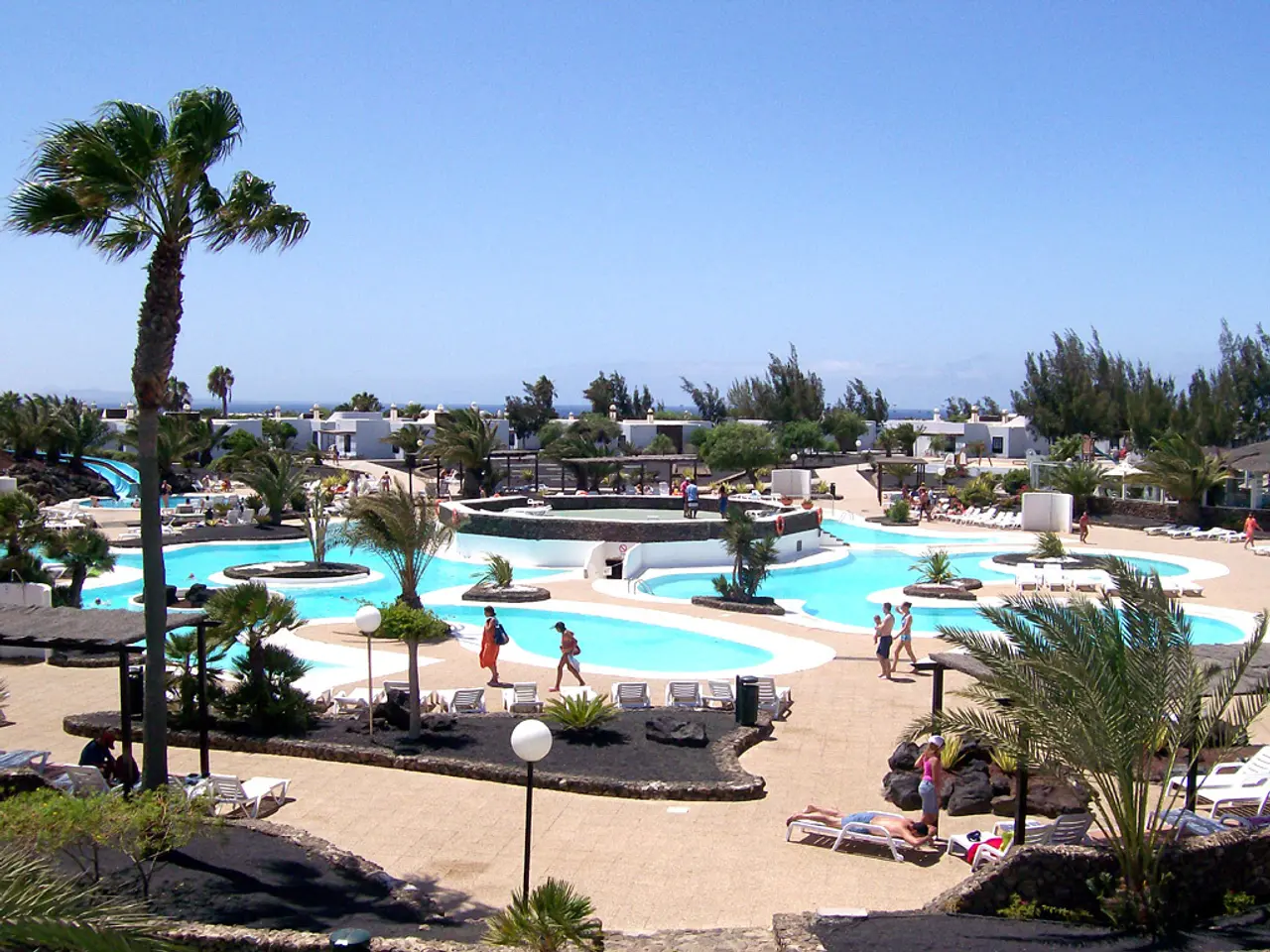Church in the Philippines advocates for a complete prohibition of internet-based gambling
The ongoing debate in the Philippines revolves around the social implications and regulation of online gambling. The Catholic Church, led by Cardinal Pablo Virgilio David, advocates for a complete ban, citing growing concerns over addiction and moral impacts. This stance aligns with some lawmakers, such as Senator Christopher Go, who have proposed the "Anti-Online Gambling Act 2025."
On the other hand, the government and various stakeholders are leaning towards regulation, aiming to control and mitigate potential harms while preserving economic benefits. The Philippine Amusement and Gaming Corporation (PAGCOR) enforces stringent regulations on licensed operators, ensuring age verification, transaction limits, responsible gaming reminders, and dispute resolution mechanisms.
A survey of over 1,000 Filipinos revealed a divided public opinion, with 53% opposing an outright ban on regulated online gambling. Many believe that banning it would drive players towards unregulated offshore platforms, increasing risks of scams and addiction. This societal concern suggests that prohibition might do more harm than good by pushing gambling underground.
The dispute highlights a tension between the moral/social concerns raised by the Church and the practical/regulatory approaches favoured by many government entities and players in the public. As the debate continues, it remains to be seen how the Philippine government will address the social impacts of online gambling and whether it will lean towards a ban or regulation.
| Stakeholder | Position | Rationale | |----------------------|-------------------------------------------|-----------------------------------------------| | **Catholic Church** | Calls for **ban on online gambling** | Concerns over social costs, addiction, moral impact | | **Some government officials / lawmakers** | Push for **ban or stricter penalties** | Responding to social concerns and public pressure | | **Government regulators and many citizens** | Favor **regulated and safer online gambling** | To protect consumers, ensure legitimacy, and avoid underground markets |
Recently, Alejandro Tengco, chairman of PAGCOR, responded to the CBCP's call with a formal justification. Critics argue that outlawing online gambling does not eliminate it, but rather pushes it into the black market. As the debate unfolds, the Philippine government grapples with finding a balance between addressing moral and social concerns and preserving economic benefits.
- The financial and business sector, including the Philippine Amusement and Gaming Corporation (PAGCOR), advocates for regulation of online gambling to protect consumers, maintain legitimacy, and prevent the growth of underground markets.
- The ongoing policy-and-legislation discourse in the Philippines involves balancing the moral and social concerns against the economic benefits, as demonstrated by the Senator Christopher Go's proposed "Anti-Online Gambling Act 2025" and PAGCOR's regulation enforcement.
- While the Catholic Church supports a complete ban on online gambling due to concerns over addiction and moral impacts, general-news sources indicate a division among the public, with slightly more than half opposing an outright ban.
- Crime-and-justice specialists may see the ban on online gambling as creating more problems than it solves, as it could drive players towards unregulated offshore platforms, potentially increasing risks of scams and addiction.




